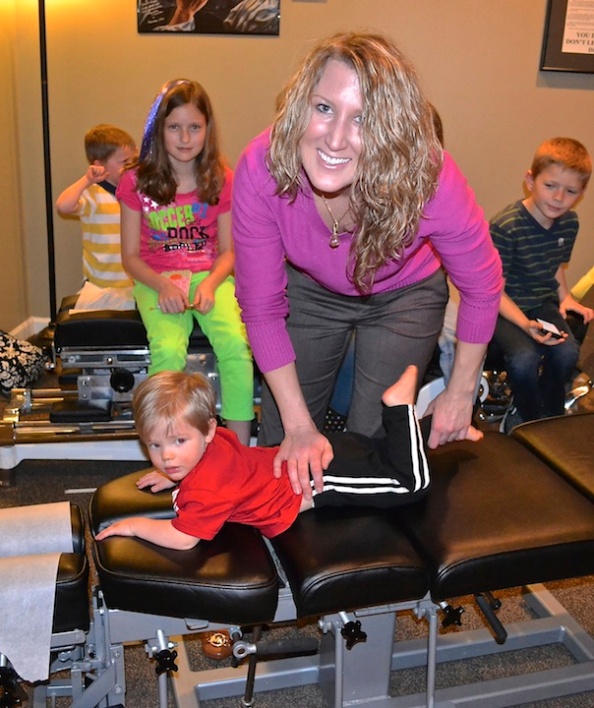The brain is the master control system for the entire body. It sends and receives a complicated frequency of signals with the body that dictate the function of the body. When there is interference in this neurological feedback loop, it alters the environment the brain perceives itself to be in; this consequently changes the adaptation process the brain orchestrates throughout the body. Chiropractic adjustments have been shown to enhance the sensorimotor integration of the brain with the body.
Many experts have hypothesized that increased stress cycles in the body produce the environment for dis-ease and eventually disease within the body. Stress can come from a variety of sources in the mental/emotional form, chemical form, and physical realm. When the body is under increased stress it responds by increasing its sympathetic tone. This means the body shunts itself into “fight or flight” survival based mode by altering cardiovascular & endocrine function to get itself ready for dynamic activity.
Many experts have hypothesized that increased stress cycles in the body produce the environment for dis-ease and eventually disease within the body. Stress can come from a variety of sources in the mental/emotional form, chemical form, and physical realm. When the body is under increased stress it responds by increasing its sympathetic tone. This means the body shunts itself into “fight or flight” survival based mode by altering cardiovascular & endocrine function to get itself ready for dynamic activity.
Increased sympathetic tone causes a release of stress hormones such as adrenalin, epinephrine, and cortisol. This is the same response we get when we are anxious or exercising. This is okay if it is for a short period of time; however, when the stress lasts longer than expected it exhausts the body and causes a state of dis-ease to manifest.
When the brain sends information to the organs, muscles, and tissues of the body, this is called efferent neurological flow. In return, the afferent flow of information includes all the messages sent to the brain from skin, muscle, joint, and organ receptors. This afferent/efferent neurological loop is how the body is able to respond and adapt appropriately to its environment.
The ramifications of increased stress hormones in the body include overworked adrenal glands, lowered immunity, decreased digestive functions, fatigue, & blood pressure disturbances. Increased cortisol levels also cause ligament laxity by stripping critical proteins from the tendon and ligament structures. This causes joint weakness throughout the body, including the spine and extremities, making them much more susceptible to injury.
Subluxation is a term used to describe mechanical compression and irritation to spinal joints and nerves. Subluxation scrambles the neurological feedback loop by causing altered rhythms of neurological flow. Subluxations are caused by trauma, poor posture, or increased chemical and emotional stresses.
Subluxations are a physical stress on the body and therefore increase the sympathetic tone, so the body shunts its energy toward the fight or flight system. If the subluxation(s) are not corrected they continue to produce this increased stress response. This increases cortisol and causes greater joint & ligament laxity in the spine and extremities making them more susceptible to injury. Additionally, increased long-term stress on the body greatly accelerates the degenerative processes of the spine and joints leading to osteoarthritis.
Chiropractic adjustments have been shown to normalize spinal afferent/efferent processes to their proper resting tone. This is like hitting the reset button on the computer when it is malfunctioning. The computer is allowed to pause and reprocess itself. Chiropractic adjustments stop the stress response and restore normal hormonal and cardiovascular function to the body. This allows the body to reset itself and begin healing the damage that was done in the body due to chronic stress cycles.
Research performed by Taylor and Murphy demonstrated that chiropractic adjustments enhanced sensorimotor integration, the body’s ability to sense where it is in space and effectively coordinate complex movement patterns. This improves function in both the brain and the body. Improved spatial intelligence translates into better physical and mental balance, coordination, and mobility. Chiropractic adjustments make you think and move with better speed, skill, and finesse.
Dr. David Jockers
Brought to you by:
Ferguson Family Chiropractic
4609 S Main Street, Acworth, GA
(770) 966-1800
http://www.fergusonfamilychiropractic.net



